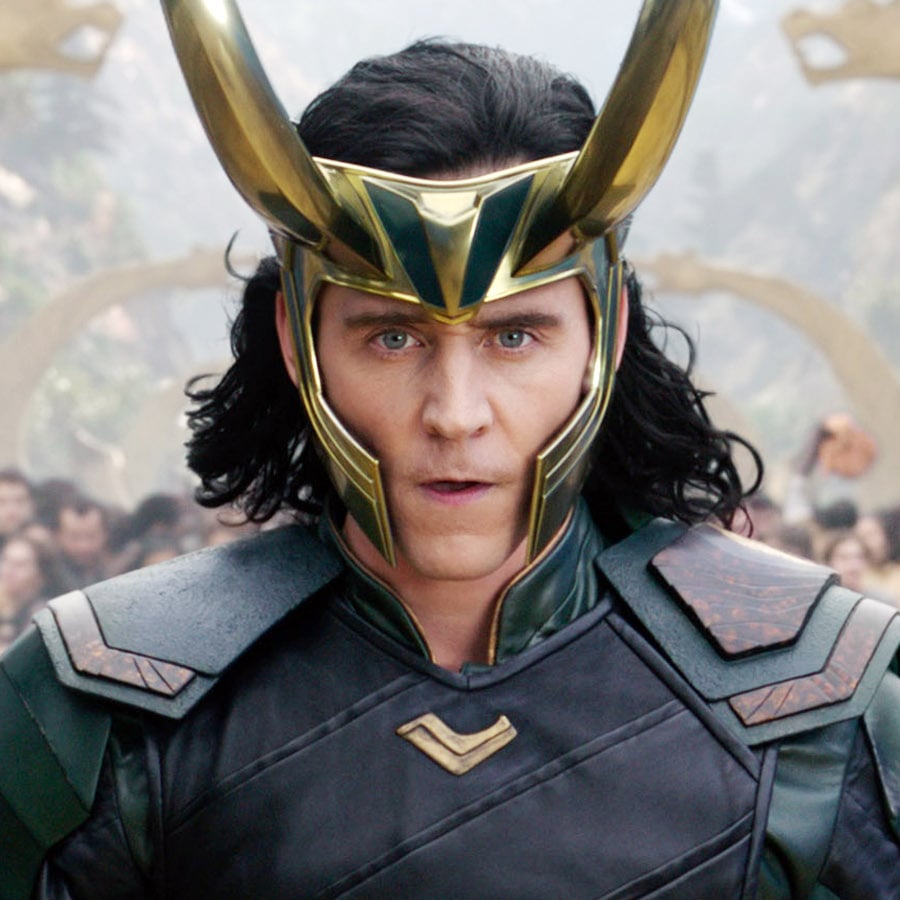
- POPSUGAR Australia
- Celebrity
- Here’s How “Loki” Takes Inspiration From Norse Mythology
Here’s How “Loki” Takes Inspiration From Norse Mythology

Tom Hiddleston has portrayed Loki in the Marvel Cinematic Universe for over a decade. The actor made his debut as the god of mischief in 2011’s “Thor.” Since then, he’s reprised his role in various Marvel projects, including “The Avengers,” which features Loki as the film’s main villain. Currently, Hiddleston is playing Loki in his own Disney+ series. “Loki” has been a major success since its premiere in June 2021. In fact, it’s the only original MCU series on the platform to get a second season.
As the MCU dives further into Phase 5, Loki continues to play a central part in the franchise. If you’re a big fan of the god of mischief, you may be curious to know more about his origins. While Loki is based on the character of the same name from the Marvel comics, he was initially inspired by Norse mythology. Of course, Marvel’s version of Loki differs from the Norse deity, but they share some similarities.
Who Is Loki in Norse Mythology?
In Norse mythology, Loki is known as a trickster who loves creating chaos. He has shape-shifting abilities, which allow him to change species and genders, and is also a god of fire. Although he’s the son of the giants Fárbauti and Laufey, Loki is sometimes recognized as part of the Aesir, which is a tribe of gods living in Asgard that includes Odin, Frigg, Thor, Balder, Jörd, and Heimdall. He’s often seen as a god due to his close relationship with Thor and Odin. Some sources paint them as close companions, while others claim Loki and Odin are blood brothers.
Despite his close connection to the gods, Loki is said to have caused the death of Odin and Frigg’s son, Balder, who was loved by everyone in Asgard. His reckless actions may have initiated the Norse apocalypse known as Ragnarök. As a form of punishment, Loki was imprisoned in a cave, shackled by the entrails of his sons, Narfi and Váli, whom he shared with the deity Sigyn. He was forced to remain there until Ragnarök.
Who Is Loki in the Marvel Cinematic Universe?
In the MCU, Loki is a trickster who uses his shape-shifting abilities to deceive those around him. He’s the son of the frost giant Laufey, whom Odin defeated while invading Jotunheim. Since Loki was abandoned as a baby due to his small size, Odin and his wife, Frigga, decide to adopt him and raise him alongside their biological son, Thor. Ever since they were kids, Loki has always resented living in his brother’s shadow. So, when Thor is set to become the new ruler of Asgard, Loki comes up with a mischievous plan to sabotage his brother and take the throne for himself.
After discovering the plan, Thor successfully stops Loki, but the god of mischief sets his eyes on ruling Earth next. Along with the rest of the Avengers, Thor defeats Loki and imprisons him on Asgard for his crimes. He’s eventually set free, and over the course of the franchise, Loki and Thor’s relationship gradually improves.
In “Thor: Ragnarok,” Loki teams up with Thor to take down their sister, Hela. However, after realizing she’s too powerful for either of them, the pair is forced to cause Ragnarök in order to bring an end to Hela once and for all.
How Does Norse Mythology Tie Into “Loki”?
“Loki” centers around the god of mischief traversing through time. Throughout the series, there are references to Loki’s Norse origins. For example, a case file for Loki lists his sex as being “fluid,” which is a nod toward his character’s ability to switch genders. Over the course of the show, Loki even meets alternate versions of himself, which include both men and women. One of his “variants” is an alligator, which is another reference to Loki’s ability to take on any species.
In a June 9 interview with Reuters, Hiddleston said he was “really pleased” the show addressed Loki’s fluid identity. “It’s always been there in the mythology. It’s been in the comics as long as, I think, the run of publishing within Marvel, over 60-plus years,” Hiddleston said. “Loki, as a character, has had such a broad and wide-ranging identity. He’s always been a character that you could never put in a box, that you could never pin down, and I was really pleased that we were able to touch on that in the series.”
The series also portrays Loki as more of an antihero than a villain. He becomes friends with TVA agent Mobius M. Mobius and falls in love with one of his variants, Sylvie. While Loki is still up for causing chaos, his new connections have softened him. In fact, by the end of the first season, Loki is intent on saving the multiverse. Loki becoming an antihero could be a nod toward his character in Norse mythology, who is considered to be neither good nor bad.
Clearly, the MCU has put its own spin on Loki, but it has also retained a few key details from the character in Norse mythology. From his connection to Thor and Odin to his shape-shifting abilities, there are clearly many overlaps between the MCU and Norse versions of Loki.

